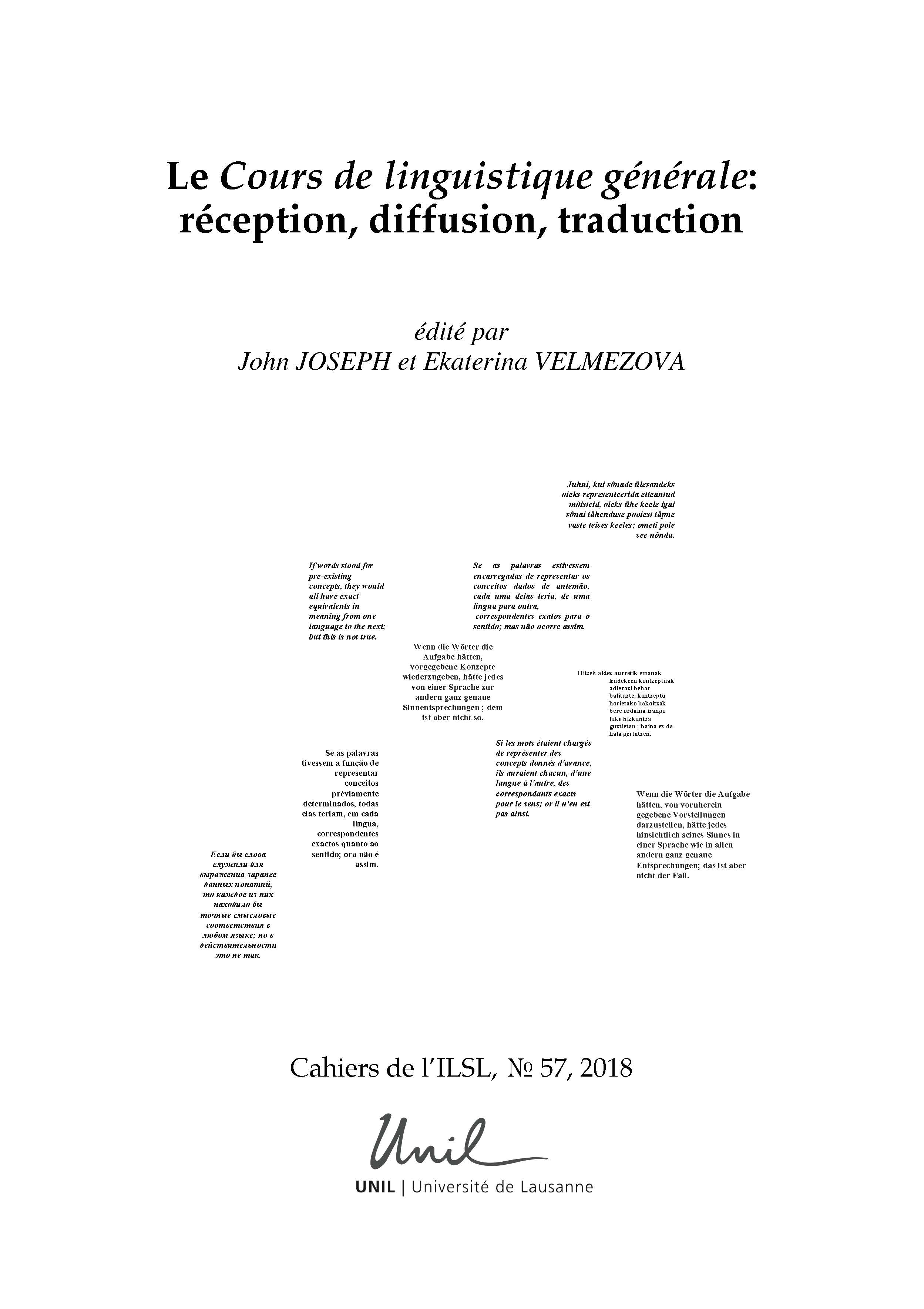Résumé
It is surprising that the Turkish public had to wait until 1976 to read a translation of
the Cours de linguistique générale [Genel dilbilim dersleri], an influential work on
the national language reform of decades earlier. Ordered by the Turkish Language
Society and published in two volumes (appearing in 1976 and 1978), the translation
was followed in 1984 by a second edition with an updated vocabulary. Founded in
the decade following the proclamation of the new republic, the society’s mission
was to conceive and implement a language reform on a national scale. The translator,
Berke Vardar (1934-1989), was an active theoretician and supporter of the
language reform, and a pioneer in introducing the discipline of linguistics in Turkey.
The local context of the Cours’ publication in Turkey being closely related to
this controversial but extensive language reform, my contribution will be dedicated
to Saussure’s reception by language planners. Tahsin Yücel (1933-2016) made use
of the arbitrary sign thesis to counter conservative objections against new words
introduced by modernist language planners. Massive elimination of Ottoman
words, quickly replaced by new ones – be they rediscovered “pure Turkish” or
freshly “made-up” ones – provoked considerable indignation in more conservative
circles. These objections were mainly targeted against linguistic intervention, seen
as a destructive attack against the natural evolution of the language, besides being
ultimately unproductive. Taking up the defence of the language reform, Yücel
reclaimed individuals’ freedom in parole, referring to the Saussurean distinction
between parole and langue. Another Saussurean theme that he adopted is the distinction
between synchronic and diachronic, which accounts for present-day words’
remoteness from their earlier ancestors without discrediting language change. Finally,
by recalling the arbitrary character of the linguistic sign, he refuted the claim
that old words were more genuine, or that they held a special relation to the concept
that they signify.

Cette œuvre est sous licence Creative Commons Attribution 4.0 International.
